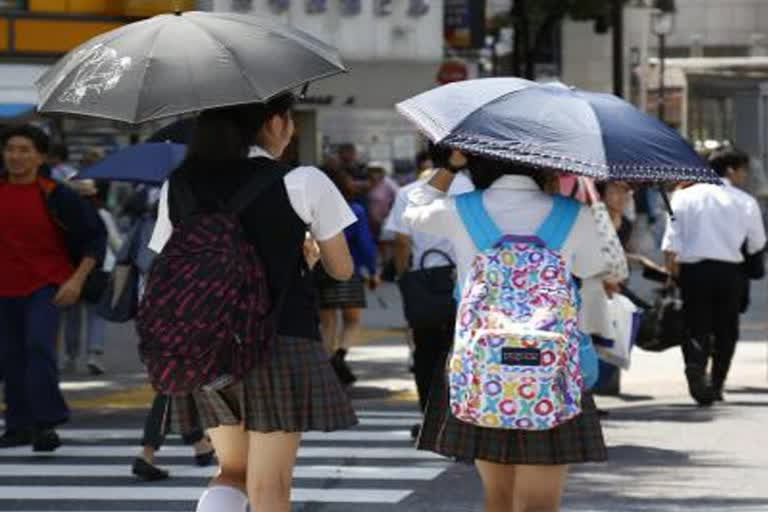New Delhi: The Indian Council of Medical Research (ICMR) on Tuesday suggested that primary schools in India can be reopened after vaccinating the schools' staff including teachers, bus drivers and or the support staff.
"Primary schools in India can be reopened. However, the district and State administration should properly assess the situation before taking the call of reopening of schools," said Dr Balram Bhargava, director general of ICMR in New Delhi.
He said that primary schools should be opened first before opening secondary schools.
Dr Bhargava said that young children can handle the viral infection much better than adults. "Ace receptor which is prone to the virus attack is very minimal among children and they can fight the virus very well," said Dr Bhargava.
To substantiate his claim, Dr Bhargava also said that seroprevalence amongst children below 18 years of age is almost similar to that of 18-44 years of age.
Referring to the fourth national serosurvey being conducted by ICMR, Dr Bhargava said that seroprevalence amongst children between 6-9 of age is 57.2 percent and 61.6 percent amongst children of 10-17 years of age.
"Seroprevalence amongst 18-44 years of age is 66.7 percent, 77.6 percent amongst 45-60 years of age and 76.7 percent amongst 60 years and above," said Dr Bhargava.
Also read: India's Covid deaths 10 times the official toll: Report
The result of the national serosurvey was released today. Interestingly, it is for the first time that children are also included in the serosurvey.
"In the previous three serosurveys only adults and priority group people were included," added Dr Bhargava.
The survey was conducted amongst 28,976 adults and children (6-17 years of age) and 7,252 health care workers from 70 districts in 21 States.
In the survey, 10 villages from each district, 40 individuals per village, 400 individuals above 6 years of age and 100 healthcare workers from each district were included in the nationwide survey.
As many as 12,607 adults in the survey did not get any vaccine, 5,038 adults got 1 dose of the vaccine and 2,631 adults got 2 doses of vaccines.
A comparison of four serosurveys has revealed that in the first serosurvey 0.7 percent people had seroprevalence (between May-June 2020), 7.1 percent in the second survey (August- September), 24.1 percent seroprevalence in the third survey conducted between December-January and 67.6 percent seroprevalence has been found in the latest survey that was conducted between last week of June to the first week of July.
"The seroprevalence amongst rural and urban population is almost same with 66.7 percent and 69.9 percent respectively," said Dr Bhargava.
The seroprevalence amongst male population was 65.8 percent and 69.2 percent amongst female.
"There was a big difference of seroprevalence amongst vaccinated and unvaccinated people. The rate of seroprevalence was 62.3 percent amongst unvaccinated people, 81.0 percent amongst people with one dose of vaccine and 89.9 percent amongst people with two doses of vaccines," Dr Bhargava said.
The seroprevalence amongst healthcare workers (unvaccinated) was 10.5 percent, 13.4 percent amongst healthcare workers with a single dose and 76.1 percent amongst healthcare workers with two doses.
Also read: Hike health expenditure to tackle Covid-19 pandemic: SP tells govt
"Two-third of the general population had SARS-CoV-2 antibodies which means at least 40 crore people are still vulnerable to the infection," said Dr Bhargava.
As per the serosurvey, more than half of the children (6-17 years) were seropositive.
Dr Bhargava, however, said that the national serosurvey is not a substitute for local variations.
"State-led sentinel sero-surveillance will inform further state level action," added Dr Bhargava.



